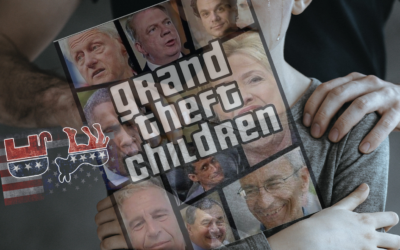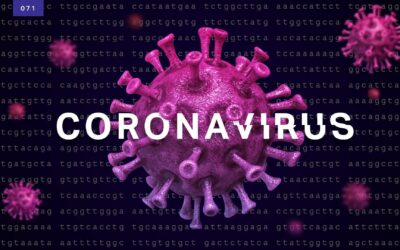Information technology, among all that it does, brings together two things which are wonderful when apart, and frightening when combined: children, and sex. For the past couple decades, this has, understandably, freaked us all out. We need to calm down and have a talk about it.
In his defense of freedom of “icky speech”, Neil Gaiman observed, “The Law is a blunt instrument. It’s not a scalpel. It’s a club.” This exemplifies how much of the world has reacted to the intersection of technology, sex, and children: by wildly flailing around with a gigantic legal club, more often smashing itself in the head than solving any problems. Let’s explore how:
Kids Looking At Pornography
The Internet is really, really great for porn. Porn is so easy to find online that even a child could do it. The problem, so it would seem, is that this is exactly what children end up doing. And as they approach and go through puberty, boy oh boy do they find porn.
 Such porn-finding is unstoppable. Nobody ever clicks “No, I am not 18 years of age or older” when visiting a porn site. No web filtering software can stand up to the resourcefulness of a curious and hormonal teenager. No law will convince a maturing human being not to seek out sexually explicit material. The underage psyche interprets barriers to pornography as damage, and routes around it.
Such porn-finding is unstoppable. Nobody ever clicks “No, I am not 18 years of age or older” when visiting a porn site. No web filtering software can stand up to the resourcefulness of a curious and hormonal teenager. No law will convince a maturing human being not to seek out sexually explicit material. The underage psyche interprets barriers to pornography as damage, and routes around it.
For some reason, this is seen as a bad thing. Exposure to graphic depictions of sex are considered somehow harmful to children, teenagers, and anyone below the arbitrary age of 18, 21, or whatever. But as generations of kids raised on surreptitiously-accessed Internet porn grow older, little evidence of harm shows itself. Rampant porn-viewing hasn’t been shown to increase rates of sexual assault or sexual violence; in fact increasing availability of porn has correlated with a decline in rape. On that note, what pornography may also do is aid in young people’s exploration and discovery of their own sexualities as they mature — a hypothesis which, if true, isn’t particularly malignant.
Yet, we insist on criminalizing this perfectly normal behavior by sexually developing human beings. In many cases, this illegality concerns the willful distribution of pornography to a minor — giving the pornographer, not the minor, the blame. But here’s the thing: nobody has to distribute or market pornography to a minor. They’ll find it all by themselves.
Kids Willfully Creating “Pornography”
It starts to get a bit more problematic when that exploration goes beyond passive viewing; apparently, kids these days are into something called “sexting”. At its most innocuous, a child or teenager snaps a nude or sexually explicit photo of themselves, and sends it (often via MMS) to a friend, crush, or significant other. All of a sudden, through their own free will, the kid’s become a child pornographer.
Of course, this behavior is far from unique to minors. Information technology has enabled consenting adults from all walks of life to share sexually explicit imagery of themselves with one another. MMSes and emails between friends aren’t even the half of it. Webcams and video chat software weren’t on the scene for five minutes before somebody realized that they could be used to transmit their genitalia. There are sexually explicit social networks and YouTube-clones where people can expose themselves to millions of anonymous viewers. There’s even a fusion of these two in live video broadcasting websites which permit people to stream real-time images of themselves doing scandalous things without very much clothing on. As with all sexually-charged things that consenting adults do, sometimes minors decide to give it a try themselves.
Child pornography laws are meant to prevent the abuse of minors. When minors decide, by their own volition, to take nude or sexually explicit images of themselves and share them with loved ones, friends, or even anonymous acquaintances, it’s hard to describe how that could possibly constitute abuse. Sadly, because of the law, all parties involved end up liable for the heinous crime of child pornography: both the recipient, regardless of age, and the exhibiting minor.
Laws intended to protect children from sexual abuse now have the effect of criminalizing behavior that — in the context of our contemporary world — is perfectly reasonable for a pubescent minor to engage in. It’s not really that weird, strange, or appalling that sexually-developing young people might want to show off their bodies to their fellow sexually-developing young people; the only weird part is this new medium of exhibition they’re using. Before the Internet and cellphones, kids just took off their clothes for each other in person.
Much like with physical, flesh-and-blood sexual intimacy, educating children about why they shouldn’t make themselves into porn stars isn’t going to work; they’ll still desire to, and they’ll still do it. And there’s nothing inherently wrong with that. The sanest course of action is to educate them about responsibility: “use a condom” is to real sex as “don’t send pictures of your boyfriend’s dick to all of your other friends” is to explicit image sharing. But the reason for that advice should be basic common sense and human decency, not because doing so will force you to register as a sex offender at age 14.
Actual Child Pornography and Pedophilia
What about the actual abuse from which children need to be protected? The sexual abuse of children — or anyone, for that matter — is rightfully illegal, and absolutely reprehensible. But in our zeal to destroy reprehensible things, most societies have gone further, and made it illegal to access or possess images of this abhorrent abuse. Unfortunately, the uncomfortable truth is that banning the possession of child pornography doesn’t do any good.
First of all, child pornography is a wonderful scapegoat. Copyright lobbyists regularly use child porn to incite moral panic, and make their proposals to censor the Internet more palatable. And much like these “piracy-stopping” censorship schemes, child pornography bans don’t stop the sexual abuse of children involved.
Before the Internet, child pornography was distributed secretly among close-knit networks of pedophiles. It wouldn’t be unreasonable to assume that the recipient of child porn might be no more than two or three degrees of separation from its creator — the actual person who had committed the sexual abuse. Today, a single child rapist can anonymously distribute their “work” to thousands of people with a single click of a mouse. The downloaders often have absolutely no idea who the perpetrator was; their arrests solve nothing.
Furthermore, there is no conclusive evidence that viewers of child pornography are more likely to act on their fetishes and commit sexual abuse of a child. In fact, based on the aforementioned “porn lowers rape rates” study, one could reasonably hypothesize that the exact opposite is true.
The criminalization of viewing or possessing child pornography only serves to get “revenge” on people who are interested in it. It does not lead to the imprisonment of child rapists, it does not give justice to the victims, and it does not stop potential pedophiles from acting on their urges.
What would, in fact, stop potential pedophiles from acting on their urges is mental health treatment. If at all possible, societies should not view sexual diversity or fetishism as a mental illness; it’s not a particularly harmful thing if somebody is sexually aroused by, oh, let’s say, being hit in the face with a pie. Sexual attraction to children, on the other hand, isn’t something that can be reasonably accommodated — hence, a mental health problem.
But much as the criminalization (and resulting stigmatization) of drug use makes addicts afraid to seek treatment, people suffering with pedophilia fear the consequences of getting help. In researching this article, I got an anonymous source to put it in his own words for me:
When I was 17 I looked at a lot of porn, just like anyone my age. I was curious about it all. I didn’t even know I was gay until I got curious about gay porn. So I looked at all the varieties, twinks, jocks, black guys, Asian guys, groups, all of it. Weirder stuff too like bondage, BDSM, some of it I liked for a while, some of it I never went back to. Then I started looking at kids. I was curious, and a horny teenager, so it wasn’t like it was that creepy. But every time after, I felt horrible. I could see how scared those kids were in the pics but I didn’t stop. I told myself, it’s just because I’m young, I’ll grow out of it, but I’m 20 now and still can’t stop myself sometimes. I wouldn’t ever go and do it for real, I know that. I like guys my own age and older, so it’s not like I can only get off to kids. But I still hate myself for it. But if I go out and tell someone I need help, the feds might come and knock down my door. So I don’t know what to do.
This is the sort of person who needs a therapist’s couch, not a prison cell. But our irrational rage at all things pedophilic deny this man his health, his sanity, and his right to be a productive member of society. He’s not alone, he’s just the one brave enough to break the silence.
Conclusion
The intersection of sexuality and children is understandably frightening. It’s a very primal instinct to want to protect children, and sex — as something that many full-grown adults still haven’t fully come to terms with — seems threatening with its emotional complexity, and its potential for abuse. The Internet and other information technology make it easier for everyone to encounter all types of information, and consequently, for children to encounter sex. But there are two things we must remember:
- Sex is perfectly fine, and something that children need education of, not protection from.
- Sexual abuse is not perfectly fine, and is its own distinct concern.
If we truly care about protecting children from sexual abuse, then it behooves us to do it effectively. Knee-jerk reactions, moral panics, and emotion-based policymaking do not protect our children. Ineffective laws only serve to make politicians and civil servants look like they’re doing something, in a ploy to win public support. And that is almost as disgusting as abusing a child.



